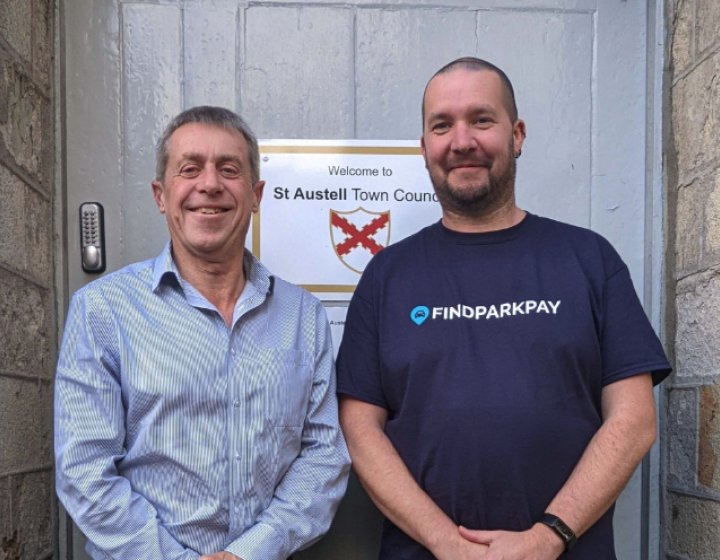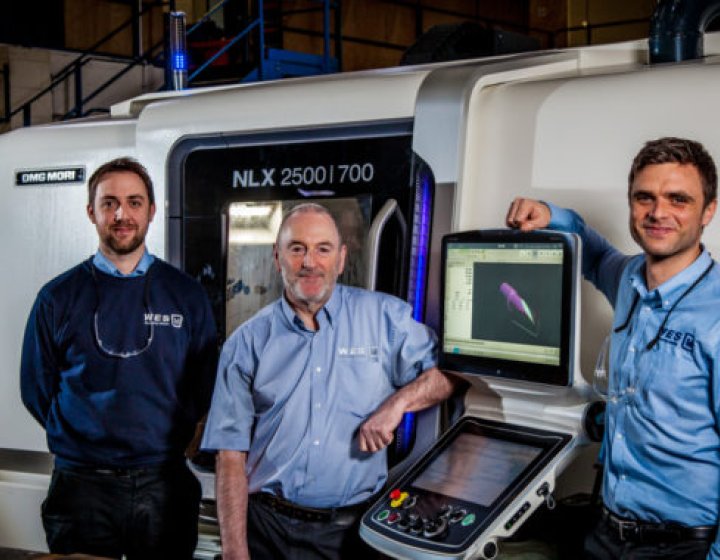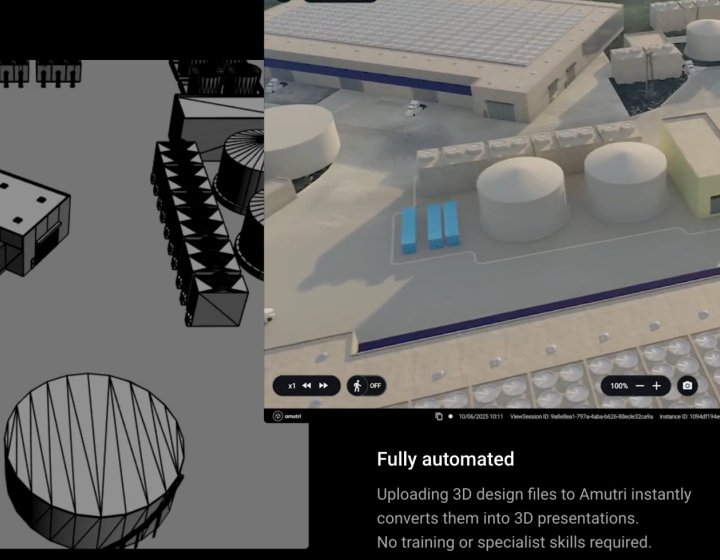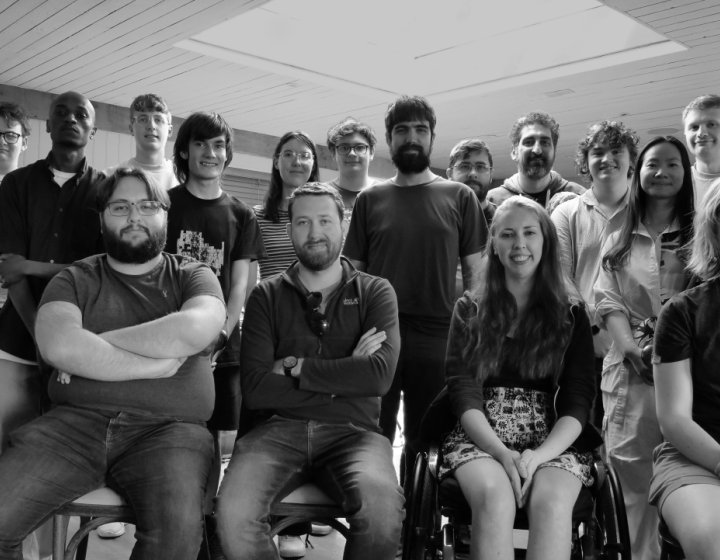How to build your start-up

Patrick Huang and Mike Morris joined Launchpad in June. Co-founders of MeatFreed, a community platform for consumers, chefs, and brands who are all interested to explore more plant-based dishes, Patrick and Mike have given us their thoughts and tips on how to build a start-up from inception and validation to future product-market fit...
Where do ideas come from?
How many times have you heard the phrase 'that's a brilliant idea, I wish I had thought of that'?
Ideas can come from anywhere; news items, casual conversations, observations, your personal wants or needs, or simply out of thin air as your mind wanders. One of the reasons I came to Launchpad was the opportunity for time, time to develop an idea I have had in the back of my mind for several years.
The initial idea for MeatFreed was to harness consumers' fascination with television chefs and cooking formats for a new purpose – reducing meat consumption. Reducing meat consumption is the single most effective way a person can do their bit for the environment, but there are many motivations for reducing meat in your diet from personal health to animal welfare. I had no idea whether the idea was feasible, viable or desirable.
Launchpad has not only given me the time and space to think about the idea but the tools to develop, test, and turn it into a potential business proposition. It has also given me the opportunity to meet people from all over the world with fantastic business experience and connections to help me bring the idea to market.
As the great Irish poet WB Yeats said 'tread softly because you tread on my dreams'.
The current iteration of MeatFreed is not built solely around the concept of television chefs but around creating an online community of restaurants and chefs, consumers and meat free brands. This iteration was a result of a 'pivot' that I have made in the idea after meeting my business partner at Launchpad, Mike Morris, a former Managing Director of UK Television Channel 4's commercial businesses.
So, where did the idea come from? In fact, this idea was inspired by my wife's newfound path towards veganism and the challenges that she was facing with making delicious vegan meals. Personally, I am not a 'foodie' although I would consider myself innately curious and always up for new experiences. I have tried many different foods from insects to exotic vegetables and many strange parts of animals.
Launchpad's approach to developing successful start-up businesses from ideas is all about identifying a consumer 'persona', identifying their 'pain' and finding a business solution that solves it. In my case the consumer 'persona' and their 'pain' are really close to home (and our stomachs!).
Get out of the (Launchpad) building
Sara Blakeley, in her excellent book, How to find your big idea, says that 'you can't scale an idea that only lives in your head'.
Having worked with a number of start-up businesses over the years, the main challenge I have seen with would-be founders is their reluctance to get out and test their 'great' ideas at the earliest stage possible and as often as possible.
It's easy to understand why.
As the great Irish poet WB Yeats said 'tread softly because you tread on my dreams'.
Sometimes ideas have been growing in founders' heads for years, forming the basis of incredible dreams of potential success. It's an acutely painful and personal process to test them against grim reality. Unfortunately, untested business ideas, like battle plans, rarely survive initial contact with the enemy.
That's why in the development of our MeatFreed business at Launchpad, we have been out of the Launchpad building at every opportunity to test our assumptions and value propositions with real consumers.
This is the Launchpad way – test fast, fail fast and iterate.
When founders pursue poor ideas, and hold onto false assumptions tightly, money and time are wasted which leads to demotivation of the team, stress, pressure and eventually project failure.
We have used a range of design thinking and opportunity management methodologies – development of customer personas, analysis of their key pains and needs, desk research as to size of market. But we rigorously 'timeboxed' this thinking in order to get out of the building and test our findings with real people in real situations.
By doing this as often as possible, we have already on-boarded over 25 local restaurants, engaged with 65 meat free brands, identified a small group of local MeatFreed 'warriors' to help us on our journey and started recruiting MeatFreed members.
How to (really) listen to your potential customers
I was reminded recently of a very sound piece of advice I was given when I first became a management consultant – 'talk less, listen more'.
Following the 80/20 rule as an interviewer, speaking 20% of the time and listening for the rest, is fundamental if you want to get the most valuable information about the potential for your business idea from prospective customers.
If you find that you're trying to sell or pitch or convince or argue or persuade or debate, check yourself, apologise if needed, and ask an open-ended question that gets your potential customers to start speaking again.
Customer feedback is essential to the development of a new business idea. Time spent with customers is incredibly valuable so why waste it telling THEM what YOU already know, or think you know?
I was reminded recently of a very sound piece of advice I was given when I first became a management consultant – 'talk less, listen more'.
There are many ways to develop listening skills to learn how best to inquire rather than advocate. As with everything, practice makes perfect and you might want to try to improve your skills with friends or family or in less crucial situations than in a conversation with an important customer. Learn the language of enquiry, sentences, questions and phrases that open the conversation and allow your interviewee to contribute their ideas and perspective to the discussion.
That's not to say that advocacy is a bad thing and inquiry a good. It depends on the situation. Great advocacy skills are required if you are trying to change someone's point of view or championing a specific course of action. However, where you have an opportunity to uncover information from a customer, take a highly flexible point of view and be genuinely curious.
Asking the right questions
MeatFreed is an on-line community of restaurants and chefs, consumers and meat free brands dedicated to making the consumption of plant-based protein mainstream.
The idea has gone through various pivots and iterations but a fundamental learning for the business very early on was that there are many motivations for consumers to reduce their consumption of meat and adopt plant-based alternatives.
With no money for meaningful quantitative research on the extent and motivations of consumers, we decided to take a highly focused qualitative approach by recruiting a small band of 'activists' what we then called 'alt-pro (alternative protein) warriors', or people who were already engaged in the area that our business was focused on.
We thought that recruitment questions such as 'do you want to help stop climate change?' or even ' do you think eating more veg is a good thing?' would illicit generally positive (and ultimately unhelpful) responses, so we wanted a much higher threshold for our 'alt-pro warriors'.
So the gateway to becoming one of our chosen few was a small number of behavioural questions such as 'have you purchased a plant-based alternative to meat in the past month?'
Using behavioural questions to recruit 'activists' is a highly effective way of gathering a diverse but committed group of respondents to test business ideas and a very quick way to gather a wide range of viewpoints from knowledgeable potential customers.
We recruited an initial band of seven 'alt-pro warriors'. As well as learning that each of them had a different motivation for wanting to adopt a more plant-based diet – wanting to feed their kids a better diet; saving the planet; personal health; and animal welfare – we also learned about how to communicate that aligned with our warriors' perspective. For example, the term 'alt-pro' had little resonance and given the wide range of motivations a generally positive 'do a little or do a lot, given the facts it makes sense to do something' message would aid recruitment of a wider range of consumers.
Meaningful quantitative research costs money and takes time, both things that a start-up has little of. Generating an 'activist' focus group using behavioural questions, however, is cheap, quick and incredibly useful.




